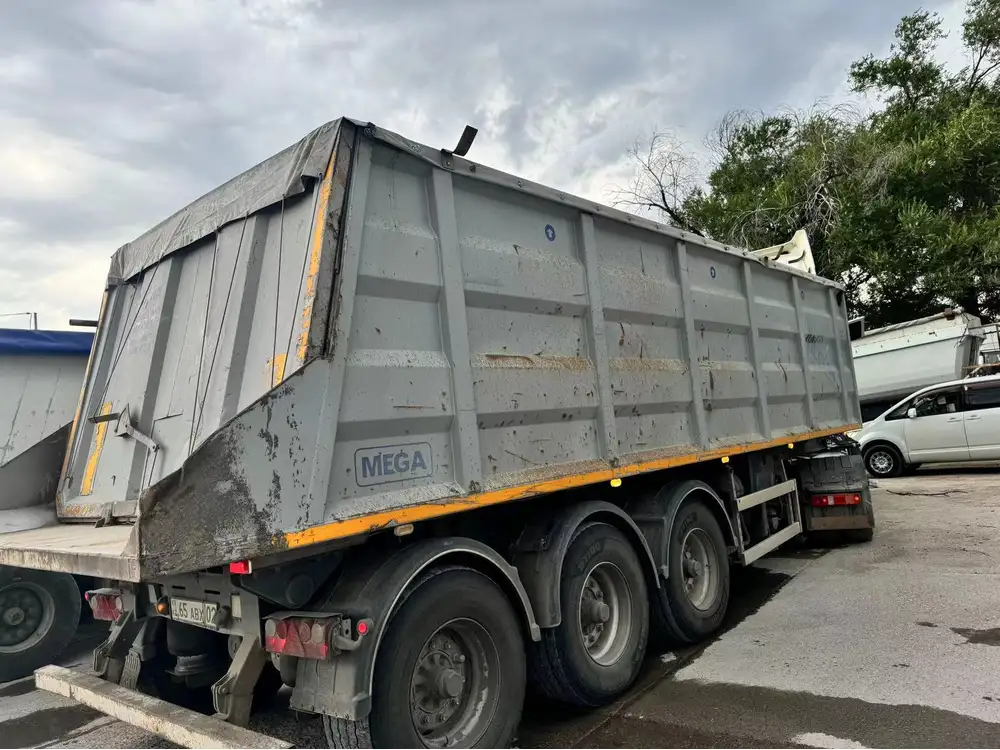Dump trailers are essential tools in numerous industries, ranging from construction to agriculture. Utilizing hydraulic systems to lift and lower the trailer bed, the efficiency and functionality of these trailers significantly depend on the hydraulic fluid used. Understanding the appropriate hydraulic fluid—its type, viscosity, and compatibility—is crucial for ensuring optimal performance, longevity, and safety of your dump trailer.
Understanding Hydraulic Fluid: The Lifeblood of Dump Trailers
Hydraulic fluid is the medium through which energy is transmitted in the hydraulic system of a dump trailer. It plays several critical roles, including:
- Energy Transmission: Facilitates the transfer of energy within the hydraulic system, enabling the operation of hydraulic cylinders and other components.
- Lubrication: Reduces wear and tear on internal components by providing lubrication, thus extending the lifespan of hydraulic parts.
- Cooling: Assists in dissipating heat generated during operation, maintaining efficient functionality.
- Corrosion Resistance: Protects metal components from rust and other forms of degradation.
Types of Hydraulic Fluids Commonly Used
When considering hydraulic fluids for dump trailers, several types are available, each with its own specific properties and applications:
| Type | Description | Pros | Cons |
|---|---|---|---|
| Mineral Oil-based Fluids | Commonly used in most dump trailers, derived from refining crude oil. | Good lubricating properties and availability. | Can degrade with heat exposure. |
| Water-based Fluids | Includes water-glycol mixtures and water-oil emulsions. | Non-flammable, providing safety in specific applications. | Lower lubricating properties than oils. |
| Biodegradable Fluids | Often derived from vegetable oils or synthetic compounds. | Environmentally friendly; suitable for eco-sensitive areas. | Generally more expensive. |
| Synthetic Fluids | Man-made fluids designed to offer superior performance in extreme conditions. | Excellent lubrication, high thermal stability. | Higher cost and specific compatibility needs. |

Recommended Hydraulic Fluids for Dump Trailers
While various hydraulic fluids might be suitable, the following are specifically recommended for dump trailers:
ISO VG 32 Hydraulic Oil: This is a popular choice for many dump trailers. It provides excellent lubrication and is versatile for different temperatures and environments.
AW (anti-wear) Hydraulic Oil: This type includes additives that help reduce wear on components, making it prudent for high-load applications often found in dump trailers.
Biodegradable Oils: Consider using these if your operations are within sensitive ecological areas. They offer a balance of performance and environmental safety.
Factors to Consider When Choosing Hydraulic Fluid
Selecting the right hydraulic fluid for your dump trailer involves considering multiple factors to ensure optimal performance and compatibility.
Viscosity
Hydraulic fluid viscosity, typically measured in centistokes (cSt) at 40°C, plays a crucial role in performance. The proper viscosity ensures smooth operation:
- Low Viscosity: Suitable for cooler temperatures, allowing easier flow and operation.
- High Viscosity: Better for warmer conditions, reducing the likelihood of fluid breakdown and leakage.

Temperature Range
Different hydraulic fluids have specific operating temperature ranges. Check the manufacturer’s specifications of your dump trailer hydraulic system and choose a hydraulic fluid that can operate effectively within those parameters.
Additives and Compatibility
Hydraulic fluids often contain various additives to enhance performance, such as:
- Anti-wear additives: Protect metal surfaces from premature wear.
- Oxidation inhibitors: Prevent the breakdown of the fluid over time.
- Corrosion inhibitors: Safeguard against rust in the presence of moisture.
Conduct compatibility testing with the existing hydraulic system to avoid potential failure or component damage.
Common Issues with Hydraulic Fluids
Understanding common issues can assist in maintaining your dump trailer’s hydraulic system and extending its lifespan.

Fluid Contamination
Contamination can arise from dirt, water, or metal particles entering the hydraulic system. Regularly checking the fluid for clarity and cleanliness can prevent premature wear on hydraulic components.
Fluid Degradation
Over time, hydraulic fluids can degrade due to heat, oxidation, and moisture. Employ routine fluid analysis to monitor viscosity and overall health, replacing fluids that exhibit signs of degradation.
Leaks
Hydraulic system leaks can lead to performance issues and potentially dangerous situations. Always check hoses, seals, and connections for leaks and replace any damaged components promptly.

Maintenance Practices for Hydraulic Systems
To ensure the optimal performance of your dump trailer’s hydraulic system, regular maintenance is paramount. Here’s a structured approach to maintenance practices:
Regular Inspections
Conduct detailed inspections of all hydraulic components, including hoses, cylinders, and pumps. Look for signs of wear, leaks, or damage that could hinder performance.
Fluid Replacement Schedule
Establish a consistent fluid replacement schedule based on usage and environmental conditions. Keep a log of fluid changes, types used, and performance metrics over time.

Clean Environment
Ensure that the area around the hydraulic system is clean and free of contaminants. Practicing cleanliness helps prevent the introduction of harmful debris into the hydraulic system.
Temperature Monitoring
Regularly monitor the operating temperature of the hydraulic fluid. Excessive heat can indicate system strain or reduced fluid effectiveness, prompting necessary interventions or adjustments.
Conclusion: Choosing the Right Hydraulic Fluid for Optimal Performance
The hydraulic fluid you choose plays a crucial role in the functionality and longevity of your dump trailer. By understanding the types of fluids available, the factors to consider when selecting a hydraulic fluid, and the importance of routine maintenance, you can ensure that your dump trailer operates smoothly and efficiently. Opt for high-quality hydraulic fluids that meet the specifications laid out by your trailer’s manufacturer, and don’t hesitate to consult an expert should you have any reservations or specific operational queries.
Investing in the right hydraulic fluid and adhering to a rigorous maintenance schedule will not only enhance the performance of your dump trailer but also safeguard it from costly repairs and downtime. With the information presented herein, you are empowered to make informed decisions that will contribute to the reliability and overall performance of your dump trailer’s hydraulic system.



